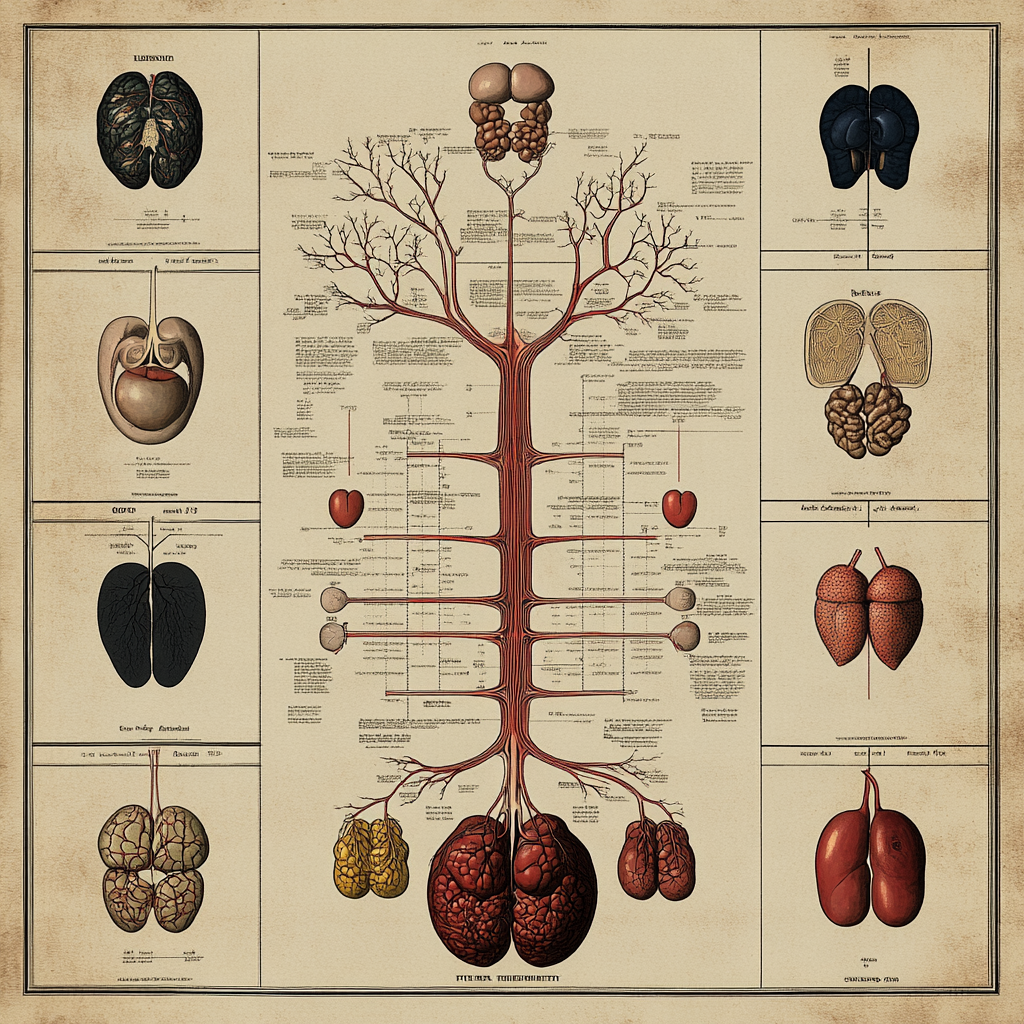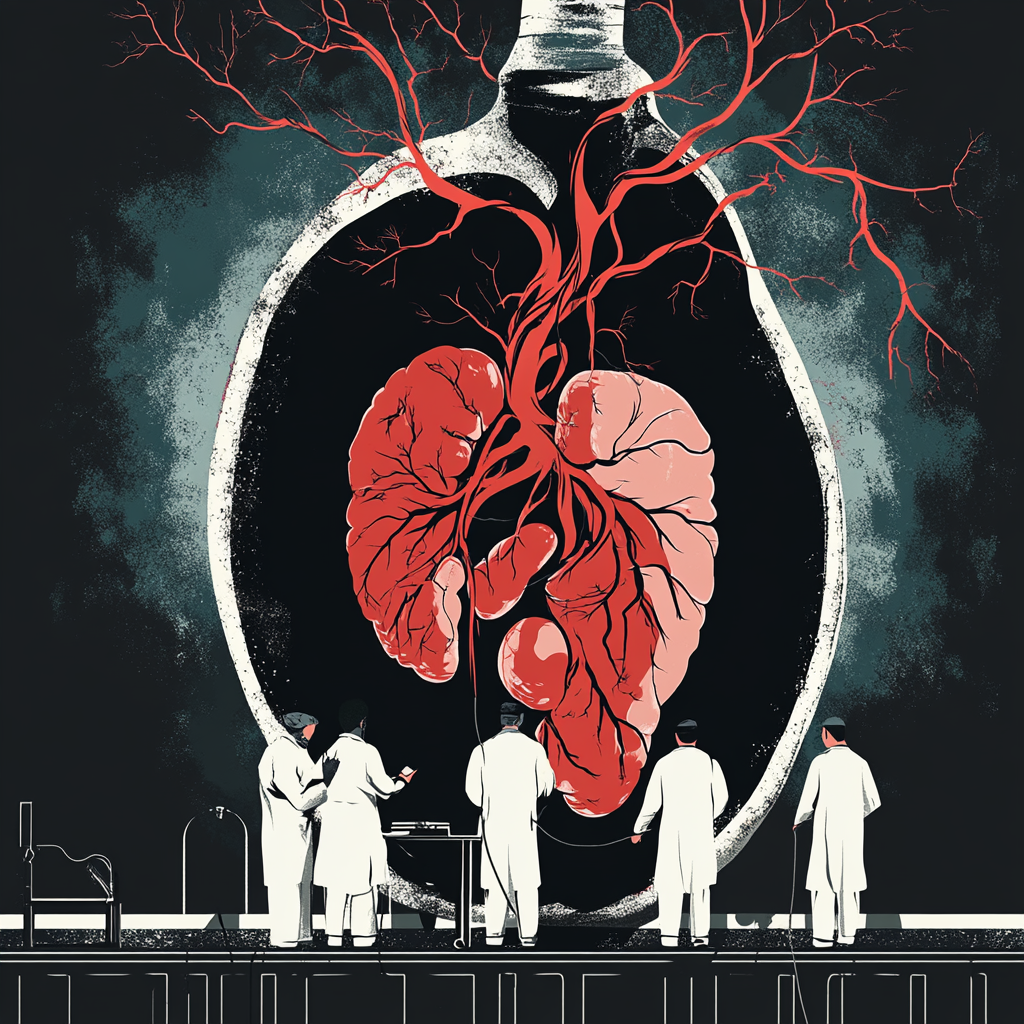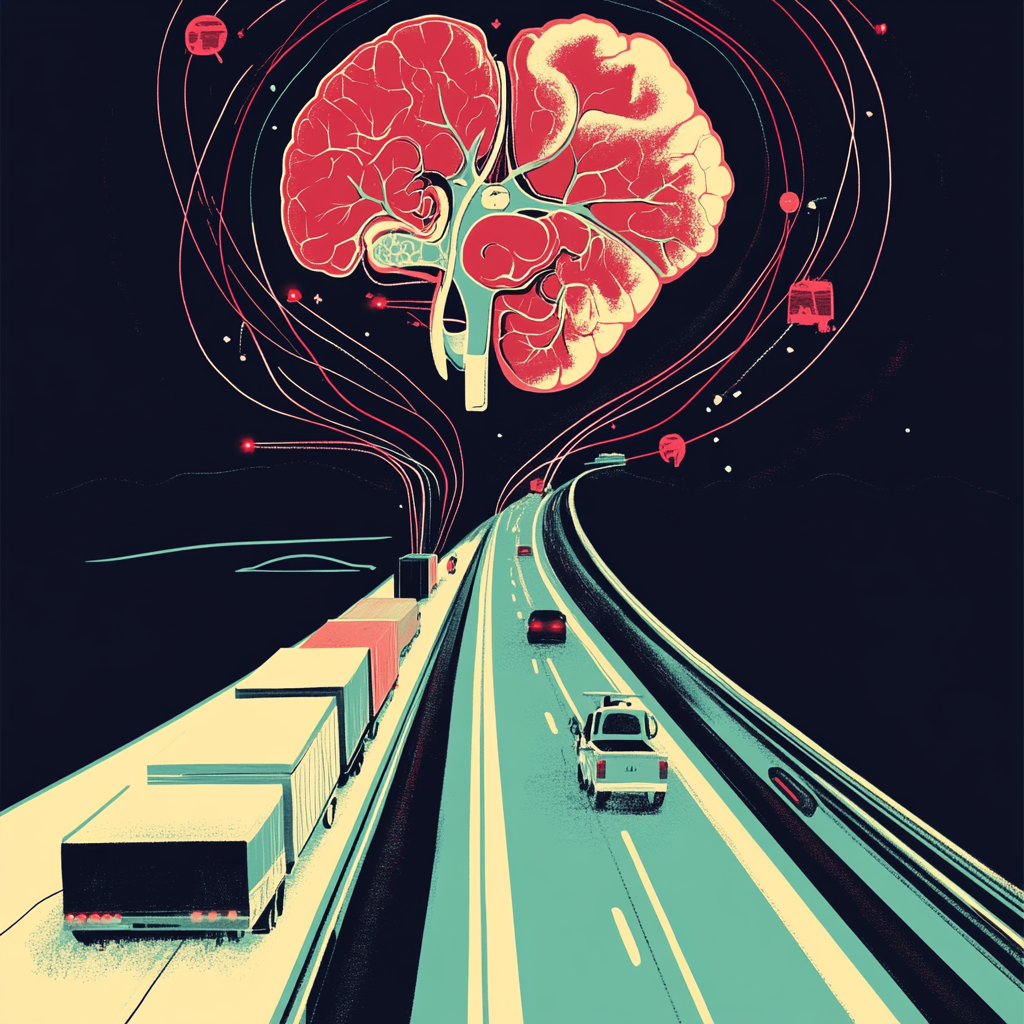Critical Ethical Considerations in Organ Transport: Ensuring Fairness and Integrity
Ethical considerations in organ transport are essential to ensure fairness and integrity in the process. These considerations include safeguards for transparency, fairness in organ allocation, informed consent from donors, and measures to combat organ trafficking. In this article, we will delve into these critical ethical issues to provide a comprehensive understanding of how to ethically manage organ transport and maintain public trust in the system.
Key Takeaways
Ethical organ transport requires clear oversight and policies to ensure fairness, transparency, and respect for the autonomy of all individuals involved in the process.
Informed consent is fundamental, particularly for living organ donors, necessitating a multi-faceted approach to ensure donors are fully aware of the risks and implications of their decisions.
Disparities in organ transport access must be addressed through comprehensive strategies to improve equity for racial, ethnic, and economically vulnerable populations, while maintaining transparency to foster public trust.
The Importance of Ethical Organ Transport

The ethical landscape of organ transplantation has evolved significantly since the first kidney transplants in the 1950s. These early procedures highlighted the urgent need for ethical oversight in the allocation and consent processes. The subsequent introduction of heart transplants in 1968, including advancements in how heart transplants are transported, only added to the complexity of ethical considerations.
Physicians have a moral obligation to maximize the number of suitable organs available while ensuring that the means of obtaining these organs are ethical. This involves adopting safeguards to uphold human rights in organ harvesting practices. The current organ procurement policies in many countries fall short of public needs, indicating a pressing need for policy reform to increase organ supply and improve public trust.
Trust between patients and healthcare providers can be undermined by the perception of inequitable access to organ transplants. Concerns about not receiving adequate medical care due to fears related to organ donation further complicate efforts to maintain transparency.
It is crucial that all participants in the organ transplantation process, including organ donors and recipients, are recognized as autonomous individuals and their personal beliefs respected. Historical marginalization within the organ allocation system underscores the necessity of ensuring fair and equal treatment for all individuals, including organ donations.
Informed Consent in Organ Transport
Informed consent is pivotal in ethical medical practice, especially in organ transplantation. Patients must be thoroughly involved in decision-making, understanding both immediate and long-term consequences. This is particularly crucial in living organ donation, where voluntary organ donation and informed consent are paramount.
Securing informed consent for organ transplantation is more complex than typical medical procedures due to various influencing factors. Ethical concerns include assessing potential donors’ competence, understanding, and freedom from undue influence. An independent donor advocacy team is crucial in protecting the donor’s needs, offering comprehensive information about the procedure, risks, and potential complications. This multidisciplinary approach guarantees that donors are well-informed and their decisions voluntary.
Moreover, the legal obligation for informed consent includes ensuring that the patient has the capacity to understand the information provided. This multi-factor approach emphasizes the assessment of risk and the personalization of information presented to patients. Before proceeding with an organ transplant, a full discussion and informed consent are necessary to ethically justify the donation.
Equitable Allocation of Transported Organs

Equity in organ transportation is essential, as perceived bias in distribution can undermine public confidence and willingness to donate. Despite the lack of universally accepted guidelines, adhering to ethical frameworks is crucial for promoting fair access. The disparity between demand and supply of organ transplants presents significant ethical dilemmas regarding resource rationing.
Medical utility and fairness are key in determining organ allocation. Most systems aim to balance urgency, waiting time, and geographical factors but often face ethical critiques. Public preferences reveal a tension between addressing immediate needs and maximizing overall health benefits, complicating policy formulation.
The COVID-19 pandemic has intensified ethical discussions around organ allocation, emphasizing maximizing benefits while ensuring fairness. Geographic and socioeconomic factors significantly affect patients’ access to transplant waitlists, with rural candidates often waiting longer for transplants, highlighting the need for more equitable policies.
Did you know that you can get from Manhattan to JFK in under 5 minutes without driving?
Blade offers seamless helicopter transfers from our West 30th Street Lounge in Manhattan to JFK Airport in just 5 minutes from $195 per seat.
Skip the traffic and ditch the stress with Blade's year-round airport service.

Transparency in the Organ Transport Process

Transparency in the organ transport process is vital for maintaining public trust. The World Health Organization stresses the importance of transparency in organ donation systems to encourage organ donation and build confidence. Clear processes can significantly enhance public confidence in organ donation and transplantation programs.
Clear protocols in organ procurement and allocation are crucial to prevent unethical practices and mitigate corruption risks. Engaging the public in establishing allocation criteria helps ensure fairness and transparency, fostering trust and support for organ donation programs.
Perceived unfairness in organ allocation can erode public trust and support for donation programs. Ensuring clarity and transparency in every step of the organ transport process is essential for maintaining the system’s integrity.
Minimizing Organ Trafficking Risks

Minimizing the risks of organ trafficking is a pressing ethical issue. Trafficking in human organs should be prohibited and criminalized to protect individuals from exploitation. The Declaration of Istanbul on Organ Trafficking offers a framework to guide efforts against trafficking and transplant tourism.
Health professionals must actively prevent organ trafficking by refusing to facilitate unethical practices. International collaboration is crucial, particularly in transnational cases. Governments should implement policies to discourage residents from participating in transplant tourism, thereby reducing the demand for illegally obtained organs.
Establishing robust and comprehensive legal frameworks is essential to enable accountability for organ trafficking and protect victims, ensuring all aspects of organ transport are conducted ethically and transparently.
Respecting Donor and Recipient Privacy
The organ transplant process requires rigorous protection of privacy and confidentiality for all involved. Both donors and recipients should have their privacy maintained throughout the process. This ethical responsibility is essential to fostering trust in the organ transplantation system.
Failure to respect the privacy of donors and recipients can lead to a loss of trust in the system. Ethical responsibility requires all stakeholders in the organ transport process to commit to upholding privacy.
Maintaining confidentiality honors the dignity and autonomy of all individuals involved.
Ethical Use of Medical Resources
Ethical use of medical resources is crucial for optimizing health outcomes during organ transport. Efficient resource management and medical ethics oversight can lead to better health outcomes in organ transplantation. This includes supporting the development of clinical trial protocols and ongoing research to continually refine and improve practices.
Implementing ethical oversight and resource management ensures efficient and effective use of medical resources, benefiting both donors and recipients in organ transplantation.
Did you know that you can get from Manhattan to JFK in under 5 minutes without driving?
Blade offers seamless helicopter transfers from our West 30th Street Lounge in Manhattan to JFK Airport in just 5 minutes from $195 per seat.
Skip the traffic and ditch the stress with Blade's year-round airport service.

Legal and Regulatory Frameworks
The U.S. organ donation and transplantation system is governed by state and federal regulations aimed at ensuring fair allocation and distribution. The National Organ Transplant Act (NOTA), enacted in 1984, was designed to enhance organ matching and address donation shortages. The Organ Procurement and Transplantation Network (OPTN), established by NOTA, provides a nationwide framework for matching organs with recipients.
The United Network for Organ Sharing (UNOS) operates the OPTN under federal contract, ensuring smooth and ethical system functioning. Multiple federal agencies, including CMS, CDC, and NIH, collaborate in the oversight of organ transplantation to maintain ethical standards. Compliance with privacy regulations, such as HIPAA, is crucial for maintaining donor confidentiality.
New regulatory changes aim to improve the accountability of organ procurement organizations (OPOs) to reduce disparities in organ access. Some jurisdictions have implemented deemed consent systems, where consent is assumed unless explicitly refused, sparking new debates about consent validity.
Balancing Speed and Safety in Organ Transport

The ethical challenge in organ transport is ensuring rapid transportation while following secure handling protocols. Quick transport is critical for saving lives, yet it poses ethical questions about safety. Balancing these imperatives requires meticulous planning and adherence to protocols.
Protocols must ensure organs are transported swiftly and safely, such as understanding how lungs are transported for transplants. This balance is crucial for successful transplantation and the overall integrity of the transport process.
Addressing Disparities in Organ Transport Access
Racial and ethnic minorities often face disparities in access to organ transplantation, affecting their likelihood of being evaluated for transplants. Patients with cognitive impairments or comorbidities frequently encounter barriers to being waitlisted. Ensuring financial neutrality in organ donation can help reduce the exploitation of economically vulnerable individuals.
Financial barriers in the USA and poor nations affect access to transplant waiting lists. Efforts to improve organ distribution are challenged by geographical disparities, as variations in policy implementation can lead to unequal access across regions.
Addressing these disparities requires comprehensive strategies that consider diverse barriers faced by different demographic groups. Ensuring equitable access to organ transplants fosters a more just and ethical transplantation system.
Bottom Line: Ethical Considerations in Organ Transport
In summary, ethical considerations in organ transport are critical to ensuring fairness and integrity. From informed consent to equitable allocation, transparency, and privacy, each aspect must be meticulously addressed to maintain public trust and optimize health outcomes. Legal and regulatory frameworks play a crucial role in upholding these ethical standards.
By addressing these critical ethical considerations, we can foster a more just and effective organ transplantation system, ultimately saving more lives and enhancing the quality of life for recipients.
FAQs about Ethical Considerations in Organ Transport
Why is informed consent crucial in organ transplantation?
Informed consent is crucial in organ transplantation as it empowers donors and recipients to make fully informed decisions, thereby respecting their autonomy and upholding ethical standards in medical practices.
How do socioeconomic factors affect access to organ transplants?
Socioeconomic factors greatly influence access to organ transplants, resulting in longer wait times for rural and economically disadvantaged patients. These disparities highlight the need for more equitable healthcare solutions.
What role does transparency play in the organ transport process?
Transparency is essential in the organ transport process as it fosters public trust and ensures ethical practices. By establishing clear protocols and engaging the public in the organ allocation criteria, fairness is upheld and the integrity of the system is maintained.
How can we minimize the risks of organ trafficking?
To minimize the risks of organ trafficking, it is essential to establish robust legal frameworks and foster international collaboration, alongside proactive measures from health professionals to refuse participation in unethical practices. These steps are crucial in protecting the integrity of organ transplantation.
What are the challenges in balancing speed and safety in organ transport?
The main challenge in balancing speed and safety in organ transport is the need to expedite delivery to save lives while adhering to secure handling protocols to ensure the integrity of the organs for successful transplantation.
Disclaimer:
Please be aware that the content on this page has been generated by using artificial intelligence language models and may contain errors, inconsistencies, or outdated information. It is provided as-is without any warranties or guarantees of accuracy. We strongly recommend using this content as a starting point for further research. We disclaim any liability for damages or losses resulting from the use or reliance on this content.